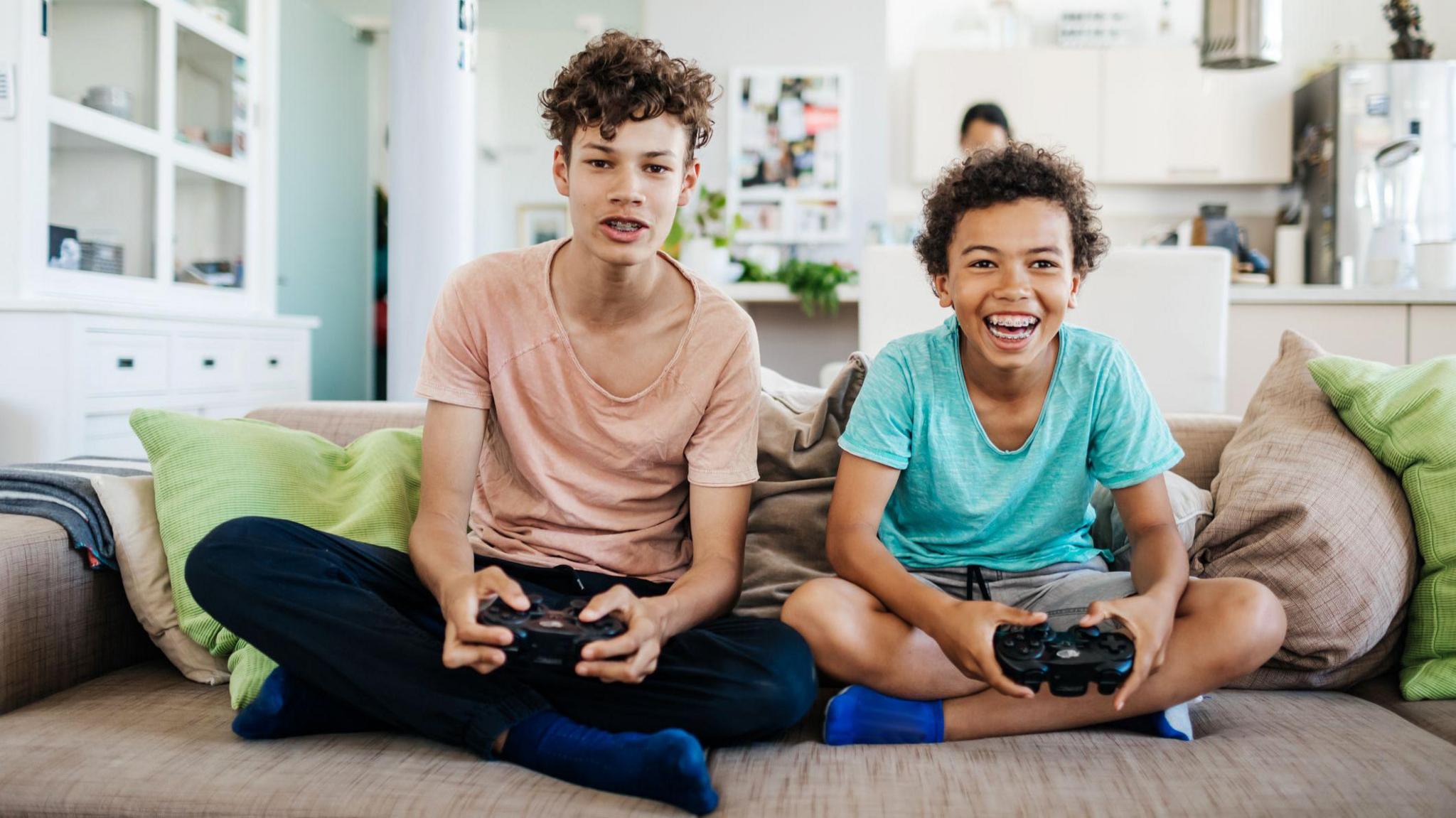Playing video games could be giving you a brain boost

- Published
Could playing video games actually make your brain smarter?
Researchers from the Manchester Museum of Science and Industry and Western University in Canada teamed up as part of a study to find out how playing games affects the way people's brains work.
Around 1,000 people from all over the world took part in special brain tests and answered questions about their lifestyles as part of the study.
The results showed that gamers performed better in memory, attention and reasoning skills tests compared to those who did not play video games.
People taking part in the study said they played games such as Minecraft, Roblox, Mario Kart, Fifa and Rocket League.
- Published16 November 2020
- Published8 January
Professor Adrian Owen, a scientist from Western University in Canada, thinks this could be down to the types of games that people play these days.
He said: "Typically, they are highly engaging, strategic and may enhance visual attention and processing speed, and problem-solving abilities, through intense repetition and practice."
He said he was "surprised that video games improved" brain performance as "we have shown conclusively in the past that computerised 'brain training' games do not improve cognitive function".
Cognitive function is the process of learning new things and understanding them by using your thoughts, experiences, and senses.
Professor Owen says he would like to do more research into gaming and thinks that this research could help people to choose activities that will help their brain function as they get older.
